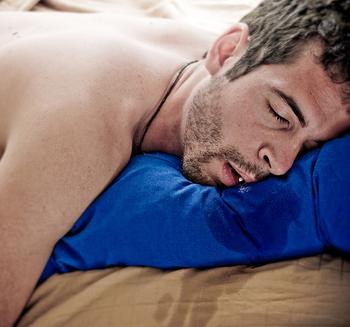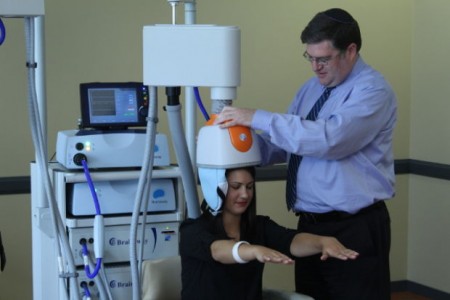Another Antidepressant Fails in Bipolar Depression
Despite repeated studies, including meta-analyses, showing that antidepressants that work in unipolar depression do not work in bipolar depression as adjuncts to mood stabilizers, antidepressants remain widely used for the treatment of bipolar depression. A recent study of the antidepressant agomelatine has shown that it is not effective in bipolar depression. In patients taking lithium or valproate but still depressed, agomelatine was no better than placebo at reducing depression.
Agomelatine has an unusual mechanism of action (blockade of 5HT-2C receptors and activation of melatonin M1 and M2 receptors) that helps normalize sleep and circadian rhythms, but only in unipolar depression. Until this study by Lakshmi Yatham and colleagues in the British Journal of Psychiatry, it was thought that these properties would make the drug ideal for bipolar depression.
Three atypical antipsychotics are have been approved by the Federal Drug Administration for bipolar depression: quetiapine (Seroquel), lurasidone (Latuda), and the olanzepine-fluoxetine combination Symbyax. These, used alongside mood stabilizers (lithium, valproate, carbamazepine, and lamotrigine) are more effective treatments for bipolar depression. There are other adjunctive treatments that may be helpful, such as the antioxidant N-acetylcysteine, vitamin D3, and folate.
Solutions for Clozapine-Induced Drooling
Clozapine is a treatment for schizophrenia and treatment-resistant bipolar disorder. Drooling is a side effect for about one-third of people taking clozapine. Here are some treatments that may help reduce it:
1) Botox injected into each salivary (parotid) gland in doses of 50 IU.
2) Ipratropium, either sprayed under the tongue or intranasally. A 2004 case series by Oliver Freudenreich in the Journal of Clinical Psychiatry described sublingual administration.
3) Glycopyrrolate. In a 2011 article in the Annals of Pharmacotherapy, AM Bird described some treatments for clozapine-induced drooling, including glycopyrrolate.
4) The blood pressure drugs clonidine (50–100 mg) or terazosin.
4) Transdermal scopolamine patch. This is typically placed behind the ear to reduce motion sickness, but it also reduces saliva production.
Bright Light Therapy Adds to Venlafaxine’s Antidepressant Effects
A study by Pinar Güzel Özdemir and colleagues in the Journal of Clinical Psychiatry indicates that bright light therapy may improve the effects of antidepressant venlafaxine (Effexor) in patients diagnosed with major depression for the first time. In the study of 50 inpatients, half received 150mg of venlafaxine at 7am each morning, while half received 150mg of venlafaxine plus 60 minutes of 7000 lux bright light therapy at 7am each morning. Beginning after the first week of treatment, both groups showed significant improvement in depression and negative mood states throughout the eight-week study. However, at weeks 2 and 4, the patients who received bright light therapy showed greater reductions in depression, with 76% reaching the target goal of treatment after four weeks compared to 44% of the venlafaxine-only group.
Both venlafaxine and combined treatment with venlafaxine and bright light therapy reversed symptoms of depression, but adding bright light therapy may produce more rapid, stronger effects. Larger studies are needed to replicate these effects and determine whether they are long-lasting.
Clozapine-Induced Myocarditis More Common Than Thought
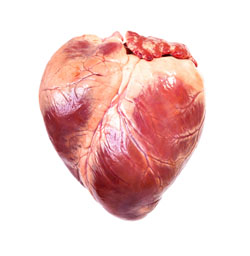 New research indicates that myocarditis, inflammation of the middle layer of the heart wall, occurs in about 3% of patients who begin taking clozapine (Clozaril). Researcher Kathlyn J. Ronaldson and colleagues recently published research to this effect in the journal Acta Psychiatrica Scandinavica. Many cases of myocarditis, which can be fatal, begin with fever. Other symptoms include rapid or abnormal heart rhythms, shortness of breath, fluid retention, and fatigue. Because the illness resembles a viral infection, it may be misdiagnosed.
New research indicates that myocarditis, inflammation of the middle layer of the heart wall, occurs in about 3% of patients who begin taking clozapine (Clozaril). Researcher Kathlyn J. Ronaldson and colleagues recently published research to this effect in the journal Acta Psychiatrica Scandinavica. Many cases of myocarditis, which can be fatal, begin with fever. Other symptoms include rapid or abnormal heart rhythms, shortness of breath, fluid retention, and fatigue. Because the illness resembles a viral infection, it may be misdiagnosed.
In 2010 Ronaldson and colleagues reported in the Journal of Clinical Psychiatry that tachycardia (rapid resting heart rate) and elevated levels of a group of proteins knows as troponin in the blood are almost always present during the first 45 days of treatment in patients who develop myocarditis. The researchers found that the time to onset of myocarditis was 14 to 22 days in almost all cases. Eosinophilia (high levels of a certain type of white blood cell) may occur in the week after peak troponin levels, and high levels of the inflammatory protein CRP (above 100mg/L) occurred in 79% of cases.
Ronaldson and colleagues suggest that patients who are prescribed clozapine be monitored for myocarditis during the first four weeks of treatment, particularly during the third week.
Genetic Variation Predicts Which Type of Antidepressant Will Be Effective
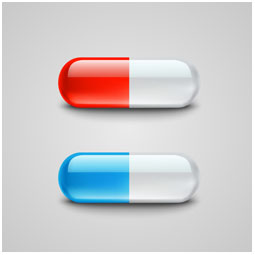 In a six-month study of Caucasian patients, normal variations in the gene that is responsible for brain-derived neurotrophic factor (BDNF) predicted whether patients would respond better to a selective serotonin reuptake inhibitor (SSRI) antidepressant versus a serotonin and norepinephrine reuptake inhibitor (SNRI) or a tricycle antidepressant. There are several common variants of the BDNF gene, depending on which types of amino acids appear in its coding—valine or methionine. Patients with the most common version, two valines (or Val66Val), responded better to SSRIs. About two-thirds of the population has this version of the gene, which functions most efficiently. The remaining third have at least one methionine in the BDNF gene. Patients with a Met variation responded better to SNRIs and tricyclic antidepressants.
In a six-month study of Caucasian patients, normal variations in the gene that is responsible for brain-derived neurotrophic factor (BDNF) predicted whether patients would respond better to a selective serotonin reuptake inhibitor (SSRI) antidepressant versus a serotonin and norepinephrine reuptake inhibitor (SNRI) or a tricycle antidepressant. There are several common variants of the BDNF gene, depending on which types of amino acids appear in its coding—valine or methionine. Patients with the most common version, two valines (or Val66Val), responded better to SSRIs. About two-thirds of the population has this version of the gene, which functions most efficiently. The remaining third have at least one methionine in the BDNF gene. Patients with a Met variation responded better to SNRIs and tricyclic antidepressants.
The study by R. Colle and colleagues was published in the Journal of Affective Disorders in 2015. Of the patients who were prescribed SSRIs, 68.1% of patients with the Val/Val version responded to the medication after three months, compared to 44% of the patients with a Met version. Of patients prescribed SNRIs or tricyclics, 60.9% of the Met patients reached remission by six months, compared to only 33.3% of the Val/Val patients.
Editor’s Note: In an earlier BNN we reported that according to research published by Gonzalo Laje and colleagues in the journal Biological Psychiatry in 2012, depressed patients with the better functioning Val66Val allele of BDNF respond best to ketamine, while those with the intermediate functioning Val66Met allele respond less well.
More Evidence N-Acetylcysteine Added to Risperidone Improves Irritability in Autism
We reported in 2014 that researchers Ahmad Ghanizadeh and Ebrahim Moghimi-Sarani had found that the over-the-counter nutritional supplement n-acetylcysteine (NAC) added to the atypical antipsychotic risperidone reduced irritability in autism more than placebo added to risperidone.
A randomized, double-blind, placebo-controlled clinical trial published by M. Nikoo and colleagues in Clinical Neuropharmacology in 2015 replicated these results. Forty children with autism disorders aged 4–12 years were randomized to receive either risperidone plus NAC or risperidone plus placebo. Risperidone doses were between 1 and 2 mg/day, and NAC doses were 600 to 900 mg/day. By the end of the 10-week study, those children who received NAC had significantly greater reductions in irritability and hyperactivity/noncompliance than those who received placebo.
Editor’s Note: Three placebo-controlled studies have supported the efficacy of NAC in autism. One 2012 study, by A.Y. Hardan in Biological Psychiatry, evaluated monotherapy with oral NAC. In the other two, NAC was added to treatment with risperidone.
No Evidence Chelation Therapy Can Treat Autism
Some children with autism have been subjected to chelation therapy, which is used to remove heavy metals from the blood after poisoning. The rationale for using this therapy in autism was the discredited theory that autism resulted from mercury poisoning. A recent review of research on chelation therapy for autism by the Cochrane Collaboration, a nonprofit health research organization, found only one randomized controlled trial of chelation therapy, which had a flawed methodology and also found no evidence of a reduction in autism symptoms. This means there is no evidence that chelation therapy, which can lead to kidney failure or death, has any effect on autism symptoms. Based on the lack of evidence that the therapy has benefits for children with autism spectrum disorders, its great expense, and the dangers it poses, chelation therapy should not be prescribed as a treatment for autism.
Deep Transcranial Magnetic Stimulation Safe and Effective in Major Depression
Repeated transcranial magnetic stimulation is a non-invasive procedure that has been approved for the treatment of severe depression since 2008. In rTMS treatment, a figure-8–shaped electromagnetic coil is placed against the forehead and magnetic pulses that can penetrate the scalp are converted into small electrical currents that stimulate neurons in the brain up to 1.5 cm deep. More recently, in 2013, the Federal Drug Administration approved a device with an H-shaped coil that delivers deep transcranial magnetic stimulation (dTMS). It can stimulate a wider area, and up to 8 cm deep.
Y. Levkovitz and colleagues have published the first double-blind randomized controlled multicenter trial of dTMS, reporting in the journal World Psychiatry that the intervention was effective and safe in patients who had not responded to antidepressant medication.
The study included 212 patients aged 22–68 years. All participants had failed to respond to one to four antidepressants or had not been able to tolerate the side effects of at least two antidepressants during their current episode of depression. The patients were randomized to receive either a sham treatment or 18 Hz dTMS over the prefrontal cortex acutely for four weeks and biweekly for 12 weeks for a total of 20 sessions.
The patients who received dTMS showed significantly greater improvement in symptoms than those who received the sham treatment, with a moderately large effect size of 0.76. Response and remission rates were also better in those who received dTMS. Response rates were 38.4% for the dTMS group versus 21.4% in the sham group. Remission rates were 32.6% for the dTMS group and 14.6% for the sham group. These difference in response remained stable during the three months of the study.
Side effects were minor except for a seizure that occurred when the protocol for the treatment was breached.
More Evidence Vortioxetine Improves Depression and Cognitive Function
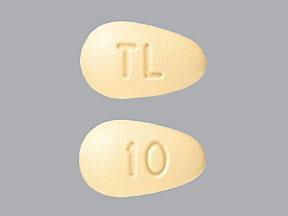 Vortioxetine (Brintellix) is a relatively new antidepressant that has a range of effects on serotonin receptors, making it different from selective serotonin reuptake inhibitors (SSRIs), which work only on the serotonin transporter. In multiple studies, it has treated not only depression but also cognitive dysfunction. In a new study led by Atul Mahableshwarkar and published in the journal Neuropsychopharmacology, 10–20 mg/day of vortioxetine reduced symptoms of depression more than placebo and improved performance on tests of cognitive ability more than placebo and another antidepressant, duloxetine.
Vortioxetine (Brintellix) is a relatively new antidepressant that has a range of effects on serotonin receptors, making it different from selective serotonin reuptake inhibitors (SSRIs), which work only on the serotonin transporter. In multiple studies, it has treated not only depression but also cognitive dysfunction. In a new study led by Atul Mahableshwarkar and published in the journal Neuropsychopharmacology, 10–20 mg/day of vortioxetine reduced symptoms of depression more than placebo and improved performance on tests of cognitive ability more than placebo and another antidepressant, duloxetine.
While depression is often accompanied by cognitive dysfunction, in this study vortioxetine seemed to directly treat the cognitive deficits rather than reducing them by alleviating the depression. The participants were aged 18–65.
Lithium May Slow or Prevent Dementia
Lithium inhibits the enzyme glycogen synthase kinase 3, which has been implicated in dementia. To study whether lithium may prevent cognitive decline, researchers led by Tobias Gerhard looked at the medication histories of patients with bipolar disorder who were 50 years of age or older. In their article published in the British Journal of Psychiatry, those patients who had taken lithium 301–365 days out of the previous year had substantially lower risk of dementia than those who had not taken lithium during that time. Patients who had 300 or fewer days of lithium use did not have a significant reduction in dementia risk, nor did patients who were prescribed anticonvulsant drugs.
Editor’s Note: These data are consistent with those of Lars Kessing and colleagues, which suggest that patients in Denmark who renewed their lithium prescriptions were less likely to receive a diagnosis of dementia in old age.
In 2011, Orestes V. Forlenza and colleagues also reported in the British Journal of Psychiatry that compared to placebo, a very small dose of lithium, 150 mg/day, slowed the progression of mild cognitive impairment over one year.


